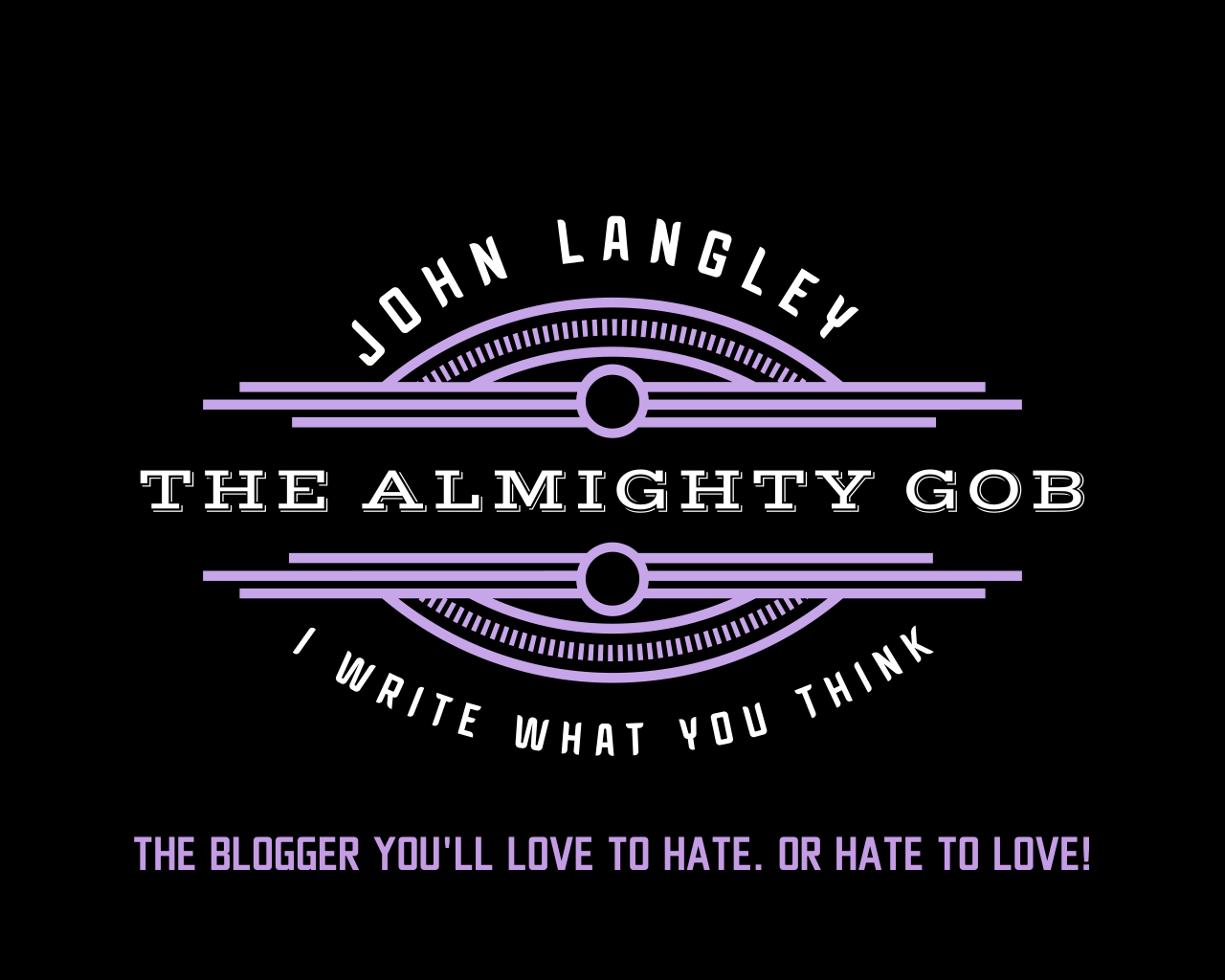#Bristol_blog- 'Unearthing Your Inner Shadow: Beyond the Surface of Self-Awareness.
Why Facing Your Deepest Fears and "Ugly" Thoughts is Key to True Growth.
Hold onto your hats, folks. Or maybe a sturdy lamppost. Because if you're a regular reader, you're about to witness something… different. I can practically hear the collective gasp, followed by whispers of, "Has the summer heatwave finally gotten to the Almighty Gob?" or "Did someone slip him some new meds?" And honestly, I wouldn't blame you for wondering.
You see, for all my usual satirical jabs and whimsical rants, every now and then, I like to pull a complete rhetorical U-turn. Just when you've got me pegged, when you think you know exactly what brand of snark and cynicism is coming your way, I like to drop a bombshell. Today is one of those rare, unsettling occasions.
This isn't about giggling at the absurdities of life, or skewering pompous pronouncements. Oh no. This plunge into the unexpected was actually sparked by my last little diatribe about Glastonbury 2025's "Morons Supreme" act, Bob Vylan. As I hammered away at the keyboard, my thoughts began to churn, dragging me into the murky, deep recesses of our collective consciousness. It got me thinking about just how truly vile and nasty people can be, deep down, and the terrifying, often unacknowledged influence that so-called "entertainment" wields in bringing out the absolute worst in us – thoughts and actions alike. The kind of raw, unvarnished ugliness displayed by that moronic Bob Vylan.
So, steel yourselves. Because today, we're not just scratching the surface. We're digging deep, far beyond the usual laughs, into territory that might make you profoundly uncomfortable. But sometimes, discomfort is precisely what we need to truly see. Ready?
Ever had one of those moments when you think, "If I could just hit rewind and start this day over, knowing what I know now..."? Well, what if I told you you can? Not a time machine, but a mindset shift so profound it fundamentally alters every "now" you experience. The Stoics, those ancient masters of mental fortitude, had a killer exercise for this. Marcus Aurelius, the philosopher-emperor, put it starkly: imagine you've already died. Your life up to this very second? Done, dusted, a closed book. Now, with whatever time is left, truly live.
It sounds morbid, I know. But try it. For a moment, really lean into it. Picture your eulogy. What would they say? What would you want them to say? And then, snap back to this moment. That argument you almost picked? That trivial irritation that was about to consume your day? The relentless hum of "me, me, me" – my reputation, my status, my stuff? All of it melts away like snow in a heatwave. Because frankly, you can't take any of that with you.
This isn't about being fatalistic; it's about seeing life as the ultimate bonus round. Every sunrise is a new level you weren't guaranteed. Think about people who've brushed with death, or nearly lost someone they cherish. They often emerge with a laser focus, shedding years of procrastination and trivial worries in days. That's the raw, undeniable force of facing our own finite nature.
The catch? That urgency, that crystal-clear perspective, has a nasty habit of fading. We get sucked back into the petty squabbles and endless distractions. It's like trying to hold onto smoke – the clarity slips through our fingers. Aurelius was constantly reminding himself of this, battling our innate human tendency towards complacency. We all know life is short, intellectually. But that knowledge often feels flimsy, like a half-hearted whisper against the roar of daily demands. It's rarely strong enough to genuinely steer our ship. But it can be. With effort, we can turn that whisper into a guiding star. Every breath is a bonus. Every moment, a gift.
Okay, deep breath. Because we're about to dive into the parts of yourself you probably don't even know exist. You think you know yourself pretty well, right? Years of self-reflection, therapy, journaling... you're basically a self-awareness guru. And then I tell you that even after all this time, there are vast, unexplored caverns within you.
The truth is, no matter your age, there's always more self-awareness to gain, more clarity to unearth. Some parts of us are so deeply buried, so meticulously walled off, that our conscious minds struggle to even glimpse them. These are the aspects we struggle to see or comprehend, the parts that, if revealed, might make us cringe or feel a profound sense of discomfort.
Think of it like trying to see through a fogged-up window. Plato mused about this, how our earthly perception of reality is often enigmatic, flawed, and distorted. He suggested we see reality "through a glass dimly." Later, in the New Testament, Paul echoed this, saying we "see through a mirror, darkly," implying that one day, everything unclear will make perfect sense. It's the ultimate reveal.
This brings us to the shadow, a brilliant concept from the Swiss psychologist Carl Jung. Imagine your personality as a house. The parts you proudly show off – the perfectly manicured lawn, the sparkling kitchen, the tastefully decorated living room – that's your public persona. But what about the dusty attic, the cluttered basement, the locked shed out back? That's your shadow. It's the repository for everything about ourselves we don't know, or can't fully comprehend. Not necessarily because it's "bad" in an objective sense, but because it doesn't fit the curated image we present to the world.
The shadow is the emotional junk drawer of your soul. It's where aggressive impulses, taboo thoughts, shameful desires, and irrational fears get stashed away. It's the part of you that, in a moment of frustration, fantasises about your rival's business crumbling, or your ex's new relationship ending in heartbreak, or your boss getting fired so you can swoop in. These are thoughts we'd never utter aloud, thoughts that could incinerate friendships and family ties.
You're probably thinking, "My junk drawer? Clean as a whistle!" Not so fast. If you're brutally honest with yourself, you've probably entertained some truly ugly thoughts. Wishing someone who hurt you would stay stuck, sick, or unhappy – not out of malice, but because it feels like a twisted form of justice.
Oddly enough, Jung didn't suggest that having these thoughts made us inherently evil. Quite the contrary. He argued that these dark, hidden desires are utterly human, almost universal. The goal isn't to purge your shadow. It's to own it. To drag that dusty junk drawer out into the light. To recognise that even the grimiest corners of your being have lessons to teach you.
As Jung famously said, "One does not become enlightened by imagining figures of light, but by making the darkness conscious." The more light you shine into those hidden corners, the fewer shadows there are to trip over. Hatred, for instance, often isn't pure malice; it's a tangled knot of fear. Once you realise it's just your shadow stirring up these nasty thoughts, they become less terrifying, more understandable:
Sometimes envy is just unaddressed longing.
Sometimes pride is just deeply masked insecurity.
Sometimes lust is just a craving to be seen and valued.
Sometimes wrath is just unspeakable, unexpressed grief.
We manufacture these ugly thoughts and then bury them deep, like forgotten toys in the back of a cupboard. But perhaps we don't need to explain them away. Perhaps we need to listen. "Until you make the unconscious conscious, it will direct your life toward it and you will call it fate," Jung warned. The more we try to keep the shadows hidden, the louder they'll bang on the door, demanding attention. Sometimes, what's lurking in the darkness holds the very answers we seek. It just needs illumination.
Maybe the point isn't to neatly solve every mystery of your psyche. Maybe the point is simply to pay attention—to the shadows, the whispers, the quiet pull in your worst moments. Because somewhere between the absolute dark and the radiant light, something sacred is trying to break through. Not to shame you, not to scare you, but to remind you.
That even the most unseemly parts of you, the neglected junk drawer of your soul, holds profound instruction. Growth flourishes when light gets in, in the gentle, unflinching act of self-reflection. Because truly, even the very darkest parts of your soul have something invaluable to teach you.
So, while I'm usually here to poke fun at the world (and myself) with the precision of a particularly tipsy darts player, today we've taken a rather different scenic route, haven't we? We've delved into the murky depths of self-awareness, faced down our inner "junk drawers," and hopefully, emerged a little more enlightened, even if it was slightly uncomfortable. But fear not, my easily startled flock, for normalcy (or my version of it) shall soon resume! Next time, we'll be swinging back to what I do best: lampooning the utterly absurd, probably with a generous side of self-deprecating humour about my latest ill-advised attempt to assemble flat-pack furniture. Until then, try not to stare too long into the abyss, lest it start whispering about your questionable life choices – though, on second thought, maybe a little whispering isn't such a bad thing after all, eh?



